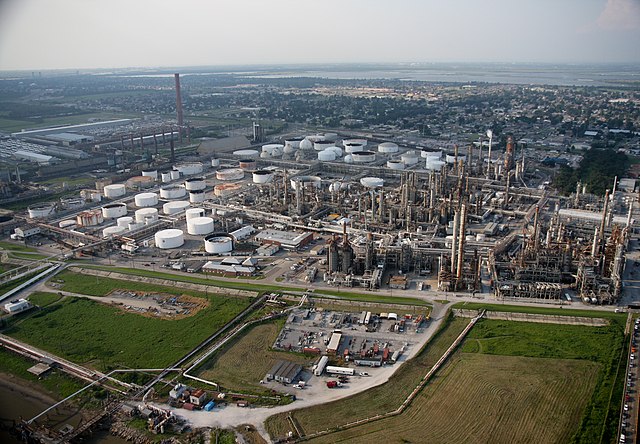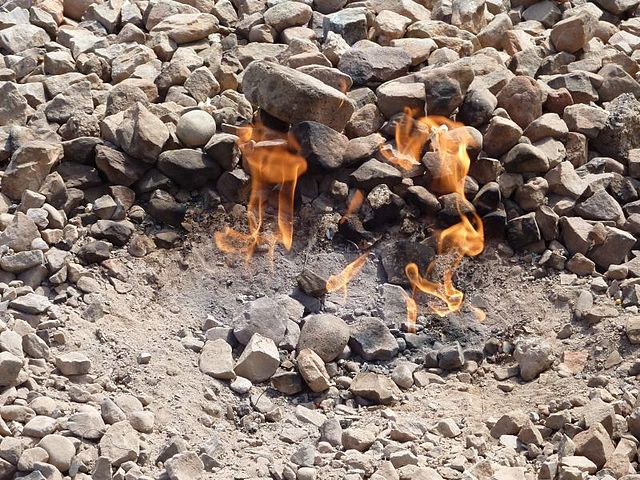The chemical industry comprises the companies and other organizations that develop and produce industrial, specialty and other chemicals. Central to the modern world economy, it converts raw materials into commodity chemicals for industrial and consumer products. It includes industries for petrochemicals such as polymers for plastics and synthetic fibers; inorganic chemicals such as acids and alkalis; agricultural chemicals such as fertilizers, pesticides and herbicides; and other categories such as industrial gases, speciality chemicals and pharmaceuticals.
Oil refinery in Louisiana - an example of chemical industry
Charles Tennant's St. Rollox Chemical Works in 1831, then the biggest chemical enterprise in the world.
Ernest Solvay, patented an improved industrial method for the manufacture of soda ash.
The factories of the German firm BASF, in 1866.
Natural gas is a naturally occurring mixture of gaseous hydrocarbons consisting primarily of methane (97%) in addition to various smaller amounts of other higher alkanes. Low levels of trace gases like carbon dioxide, nitrogen, hydrogen sulfide, and helium are also usually present. Methane is colorless and odorless, and the second largest greenhouse gas contributor to global climate change after carbon dioxide. Because natural gas is odorless, odorizers such as mercaptan are commonly added to it for safety so that leaks can be readily detected.
Natural gas burning on a gas stove
Burning of natural gas coming out of the ground
A gas bill from Baltimore, Maryland, 1834, for manufactured coal gas, before the introduction of ground-extracted methane gas.
Natural gas drilling rig in Texas, US








